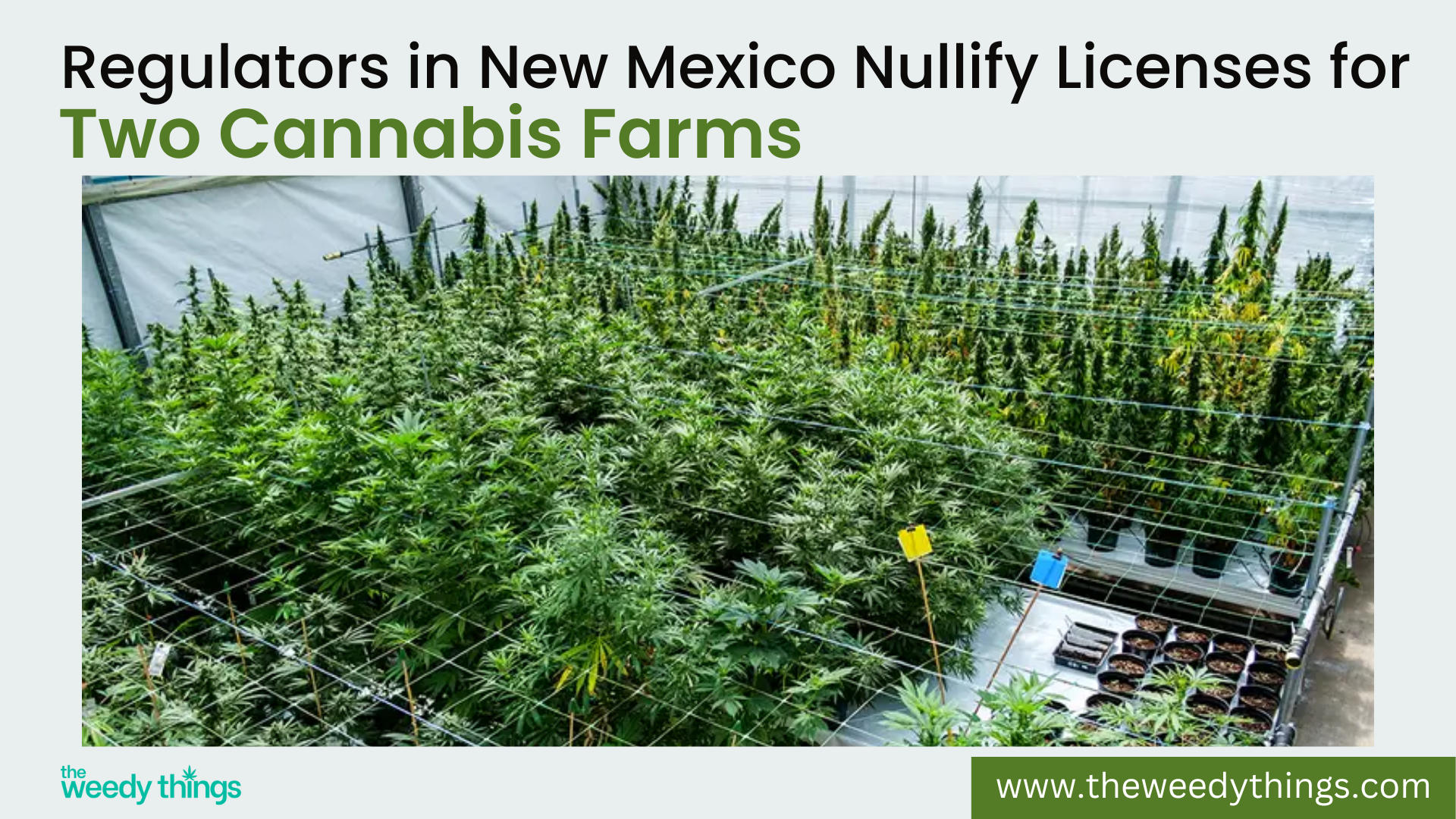The Regulatory Landscape:
The cannabis industry has been steadily gaining momentum across the United States, with more states legalizing its use for both medicinal and recreational purposes. New Mexico, like many others, has embarked on a journey to regulate and monitor the cultivation and distribution of cannabis within its borders. However, recent events have demonstrated the challenges that come with navigating this intricate regulatory landscape.
Nullification of Licenses:
The nullification of licenses for two cannabis farms in New Mexico has raised eyebrows and sparked discussions about the criteria and standards imposed by regulators. While details surrounding the decision remain somewhat opaque, it highlights the need for a transparent and well-defined regulatory framework. This move also underscores the importance of compliance for cannabis businesses seeking to operate within the bounds of the law.
Impact on Cannabis Farms:
The two cannabis farms affected by the license revocation are now facing a myriad of challenges. From financial losses to potential legal repercussions, the consequences are significant. This development serves as a cautionary tale for other cannabis farms, emphasizing the importance of strict adherence to regulatory guidelines. It also raises questions about the support systems in place to help businesses navigate these complexities.
Learning from the Experience:
For cannabis entrepreneurs and investors eyeing opportunities in New Mexico, the nullification of licenses serves as a valuable lesson. It underscores the necessity of conducting thorough research, seeking legal counsel, and understanding the nuances of the regulatory environment before venturing into the cannabis market. Learning from the experiences of those affected can help ensure a smoother and more compliant journey in this burgeoning industry.
Consumer Considerations:
Navigating Local Regulations:
Understanding local regulations is paramount for both cannabis businesses and consumers. While New Mexico’s recent decision has cast a spotlight on the challenges within the regulatory framework, it also presents an opportunity for stakeholders to actively engage in shaping future policies. Collaborative efforts between industry players, regulators, and the community can lead to more robust and effective regulations that foster a thriving and responsible cannabis market.
The Role of Weed Stores:
Looking Ahead:
The nullification of licenses for two cannabis farms in New Mexico has set in motion a series of discussions about the future of the cannabis industry in the state. As stakeholders grapple with the implications of this decision, there is an opportunity for collaboration and dialogue to shape a regulatory environment that balances the needs of businesses, consumers, and regulators.
The recent decision by regulators in New Mexico to nullify licenses for two cannabis farms serves as a wake-up call for the industry. It highlights the importance of a clear and transparent regulatory framework, the need for businesses to prioritize compliance, and the essential role of consumers in choosing legal and reputable sources for cannabis products. As the cannabis landscape continues to evolve, proactive engagement, education, and collaboration will be key in fostering a thriving and responsible industry in New Mexico and beyond.
Frequently Asked Questions
The specific reasons for the license revocation remain undisclosed, but it underscores the importance of compliance with regulatory standards.
The farms face significant challenges, including financial losses and potential legal repercussions, emphasizing the importance of strict adherence to regulations.
The nullification highlights the need for thorough research, legal counsel, and a deep understanding of the regulatory environment before entering the cannabis market.
Consumers should prioritize finding reputable weed stores near them or cannabis stores nearby, ensuring products are sourced and sold in adherence to local laws.
The decision prompts discussions about the state’s regulatory framework, emphasizing the necessity of collaboration between industry players, regulators, and the community to shape effective policies.




